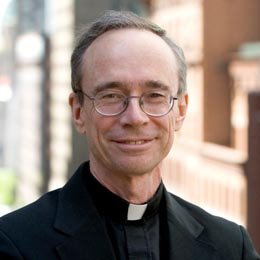 Established in 1964, the National Catholic Reporter (NCR) is the largest independent print and web Catholic news source in the United States. Recently, the NCR published an article by Fr. Thomas Reese, former editor in chief of America, exploring the massive numbers of people who have left the Catholic church in recent years. He frames the issue thusly:
Established in 1964, the National Catholic Reporter (NCR) is the largest independent print and web Catholic news source in the United States. Recently, the NCR published an article by Fr. Thomas Reese, former editor in chief of America, exploring the massive numbers of people who have left the Catholic church in recent years. He frames the issue thusly:
The U.S. Religious Landscape Survey by the Pew Research Center’s Forum on Religion & Public Life has put hard numbers on the anecdotal evidence: One out of every 10 Americans is an ex-Catholic. If they were a separate denomination, they would be the third-largest denomination in the United States, after Catholics and Baptists. One of three people who were raised Catholic no longer identifies as Catholic. Any other institution that lost one-third of its members would want to know why. But the U.S. bishops have never devoted any time at their national meetings to discussing the exodus. Nor have they spent a dime trying to find out why it is happening.
Again citing the same survey, Fr. Reese notes that only about 10% of those who have left have chosen to join a non-Christian religion. Of the remaining 90%, roughly half have chosen to become religiously unaffiliated (this group is commonly referred to as nones and comprises the fastest growing affiliation) and roughly half have chosen to become Protestant. Focusing on those who have become Protestant, Reese states: “People are not becoming Protestants because they disagree with specific Catholic teachings; people are leaving because the church does not meet their spiritual needs and they find Protestant worship service better.”
So What?
As a Catholic, Fr. Reese wants Catholic leaders to be acknowledge the significant numbers of the faithful who have left to become Protestant and to respond creatively in order to stop this massive hemorrhaging. He suggests three key areas where improvement is needed:
- First, those who are leaving the church for Protestant churches are more interested in spiritual nourishment than doctrinal issues. Tinkering with the wording of the creed at Mass is not going to help . . .
- Second, thanks to Pope Pius XII, Catholic scripture scholars have had decades to produce the best thinking on scripture in the world. That Catholics are leaving to join evangelical churches because of the church teaching on the Bible is a disgrace. Too few homilists explain the scriptures to their people. Few Catholics read the Bible. . . The church needs to acknowledge that understanding the Bible is more important than memorizing the catechism.
- Finally, the Pew data shows that two-thirds of Catholics who become Protestants do so before they reach the age of 24. The church must make a preferential option for teenagers and young adults or it will continue to bleed. Programs and liturgies that cater to their needs must take precedence over the complaints of fuddy-duddies and rubrical purists . . .
For those who are Protestant:
- What percentage of your congregation’s new members over the last five years has a Catholic background?
- In your conversations with those who have converted from Catholicism to Protestantism, do you find that most have left because of a desire to engage and understand the Bible and be nourished in their faith rather than over a specific doctrinal issue?
- How aware are you of why people leave your local congregation? For example, do you attempt to do an exit interview or survey when someone removes or transfers membership? How has the data about why people leave impacted how your congregation operates?
- What are the main reasons people are leaving your denomination? Are your denominational leaders aware of why the numbers continue to decline? of where the exiting group goes? What changes have been made, are being planned, or are currently being implemented to address this concern?
For those who are Catholic:
- Were you aware that many people in the US are leaving the Catholic Church? that such a large percentage of them become Protestant?
- Do you think the US bishops should authorize research rather than rely solely on data from a non-Catholic entity? Why or why not?
- Do you think the US bishops should take action based on the current data? If so, what type of action do you feel would be appropriate?